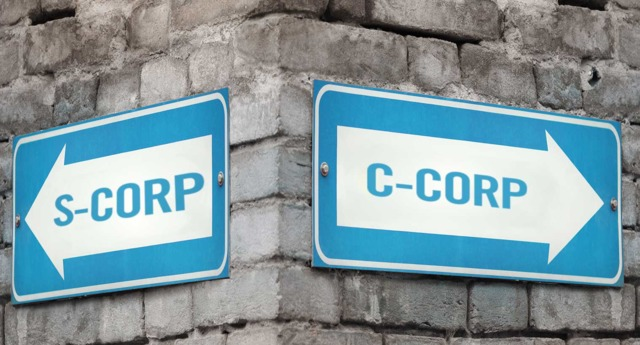When running a business, it’s easy to forget about obtaining and renewing the many permits and licenses required to keep up with federal and local regulations. The following is a helpful checklist to make sure you and your clients’ businesses stay in compliance.
Federal Tax ID. Most sole proprietorships use their SSNs to file their tax returns and register a business for licenses and permits. However, businesses with employees or those structured as a corporation, an LLC, or a partnership must get a Federal Tax ID number or an Employer Identification Number. And in most cases, you can’t open a business bank account without having one of those. An EIN can be obtained online on the IRS website or through companies like www.CorpNet.com.
Federal Licenses and Permits.
If one of your clients’ businesses is regulated by a federal agency, they’ll need a federal license or permit. For example, businesses selling, manufacturing, importing, or wholesaling alcohol are regulated by the Alcohol and Tobacco Tax and Trade Bureau.
State and Local Licenses and Permits.
It’s vital to understand what state and local licenses and permits are required. Check with your city, county, and state business development offices. Most cities require all companies, even sole proprietors, to acquire a business license. Typically, cities want to know the business’s structure, the names of the company and owners, the business address, number of employees, the federal tax ID number, and projected revenues. They likely will provide information about zoning laws and may charge a small annual fee. For certain businesses, local governments may require safety checks and adherence to health regulations. Certain restaurants are partially regulated by the Food and Drug Administration (FDA), but local restaurants have additional regulations, such as obtaining a sidewalk café permit. Parking lots require permits, as do businesses providing entertainment and businesses that impact the environment.
Specialty Licenses, Permits, and Certificates.
Just as your CPA practice requires special licenses, so do various other professional and niche businesses. Securing a specialty license gives the business permission to practice a specific skill, as is the case with hair and nail salons, legal firms, plumbers, electricians, collection agencies, daycare, pesticide dealers, and more.
Sales Tax License/Reseller Permit.
Depending on where your CPA firm is located, you may be required to charge sales tax. Because regulations vary from state to state, your clients may need to collect sales tax in some states where they make a sale. They should check with the state tax authority office in those states to find out if they need a sales tax license. For businesses selling taxable products on a wholesale basis to retailers, a reseller license (resale certificate) is required. The reseller license permits the company to sell taxable products without collecting sales tax.
Compliance for Employers.
All employers must register with their states to pay unemployment taxes. Businesses also need to register to pay unemployment taxes in any state their employees live in, even if the company is not located there. Employers must also register with the state’s department of revenue if the state mandates state income taxes be withheld. Some states have reciprocal agreements where registration is not required.
Moving to Other States.
Businesses relocating to a new state must cancel local business licenses and permits before applying for new ones in their new home. They also have to withdraw their business’s name from the Secretary of State’s office and submit a change of address to the IRS. If the business is a corporation or LLC, the business owner can dissolve the corporation in the old state and re-register in the new state or file a foreign qualification in the second state. A foreign qualification permits a company to conduct business in a different state than its home state. Business owners must submit a Certificate of Authority application form and pay fees to the Secretary of State. Finally, the owner must hire a registered agent in the new state to handle official correspondence, tax notices, and corporate filing requirements.
Amendments and Modifications.
Most states require an Articles of Incorporation amendment or Articles of Organization amendment if a corporation or LLC is making any of the following changes to the company:
- Company Name
- Registered Agent Information
- Company Business Address
- Director or Member Information
- Number of Authorized Shares
- Business Activities of the Company
Closing a Business.
If you or one of your clients has closed or is planning on shutting down a business, it’s crucial to close the business legally. If the company is not officially closed, it is still required to file annual reports, state/federal tax returns, and maintain various business licenses. Corporations and LLCs must file a form called “Articles of Dissolution”/ “Certificate of Termination” or “Certificate of Dissolution” with the Secretary of State’s office in the state where the LLC/Corp was formed.
Reinstatements.
If a Corporation or LLC lapses on complying with its corporate requirements, the company will lose its good standing with the state and may be dissolved or placed in non-compliant status. To be reinstated, the company must file a reinstatement document with the Secretary of State’s office.
As you and your clients get back to business, don’t worry about obtaining and renewing the correct licenses and permits. Most state agencies and departments have pivoted to offer online services through their websites. As always, every business is different so it’s best to consult a business attorney if more complicated situations arise.
=========
Nellie Akalp is a passionate entrepreneur, business expert, and mother of four. She is the CEO of CorpNet.com, a trusted resource and service provider for business incorporation, LLC filings, and corporate compliance services in all 50 states. Nellie and her team recently launched a partner program for accountants, lawyers, and business professionals to help them streamline the business incorporation and compliance process for their clients.
Thanks for reading CPA Practice Advisor!
Subscribe Already registered? Log In
Need more information? Read the FAQs





